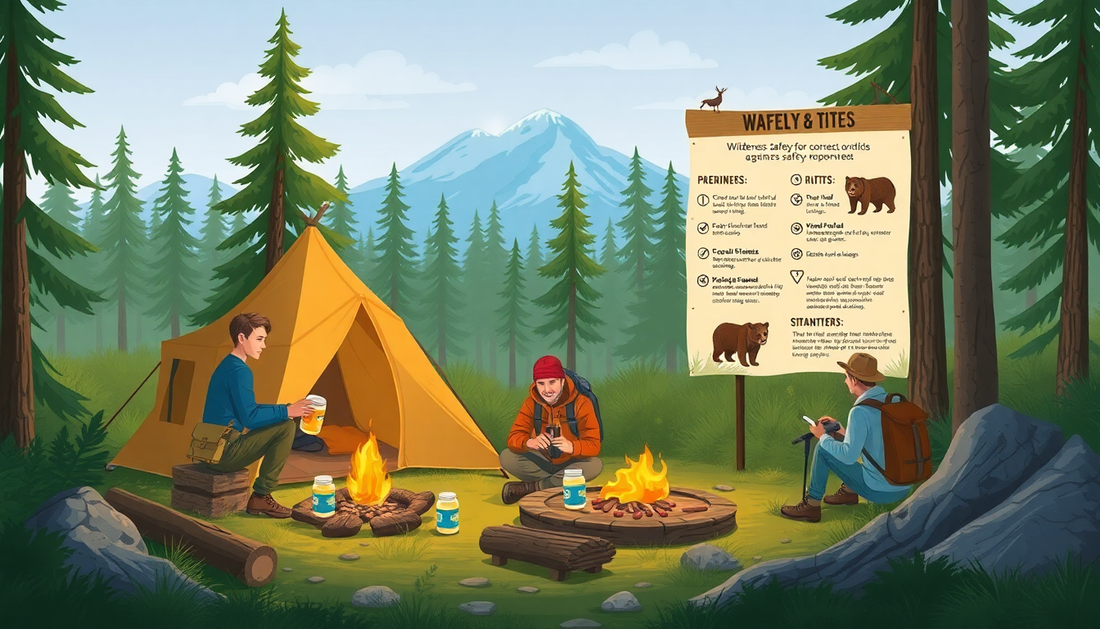
Camping Safety 101: Avoiding Wildlife & Common Hazards
Camping is an exhilarating outdoor activity that allows us to connect with nature and escape the hustle and bustle of everyday life. However, it's important to be mindful of the potential risks and hazards that come with spending time in the great outdoors. In this comprehensive guide, we'll explore the steps you can take to ensure a safe and enjoyable camping experience, with a focus on avoiding wildlife encounters and other common camping hazards.
Understanding the Wilderness
Before embarking on your camping adventure, it's crucial to familiarize yourself with the local wildlife and terrain. Research the area you'll be visiting and learn about the types of animals that inhabit the region. This knowledge will help you anticipate potential encounters and take the necessary precautions to avoid them.
Identifying Dangerous Wildlife
Different regions are home to a variety of wildlife, some of which can pose a threat to campers. Familiarize yourself with the identification and behavior of animals such as bears, mountain lions, snakes, and venomous insects. Understanding the warning signs and appropriate responses can greatly reduce the risk of a dangerous encounter.
Respecting the Ecosystem
The wilderness is a delicate ecosystem, and it's important to minimize your impact on the environment. Follow the principles of Leave No Trace, which encourage responsible camping practices such as properly disposing of waste, respecting wildlife, and leaving the area as you found it.
Campsite Selection and Setup
Choosing the right campsite can make a significant difference in your safety and comfort. Consider factors such as proximity to water sources, elevation, and potential hazards when selecting your campsite.
Avoiding Hazardous Terrain
Steer clear of areas with steep slopes, loose rocks, or other potentially dangerous terrain. Opt for level, well-drained ground to set up your tent, and be mindful of potential falling hazards, such as dead trees or branches.
Proper Food Storage
Improper food storage can attract wildlife and lead to dangerous encounters. Use bear-proof containers or hang your food in a tree, away from your tent, to prevent attracting curious animals.
Wilderness Survival Skills
In the event of an emergency or unexpected situation, having basic wilderness survival skills can be the difference between a minor inconvenience and a life-threatening scenario.
Navigation and Orientation
Familiarize yourself with navigation tools, such as a compass and map, and learn how to use them effectively. This will help you stay oriented and find your way back to safety if you become lost.
First Aid and Emergency Preparedness
Equip yourself with a well-stocked first aid kit and learn how to administer basic medical care. Additionally, be prepared for potential emergencies by packing essential survival gear, such as a fire starter, emergency shelter, and signaling devices.
Responsible Wildlife Encounters
While it's important to avoid wildlife encounters, there may be instances where you come face-to-face with an animal. Knowing how to respond appropriately can help you stay safe and minimize the risk of harm to both you and the animal.
Avoiding Startling Wildlife
Move slowly and make noise when approaching areas where wildlife may be present. This will help alert the animals to your presence and give them time to move away before you encounter them.
Proper Responses to Encounters
If you do encounter wildlife, remain calm and avoid sudden movements. Follow the specific guidelines for the type of animal you're facing, such as backing away slowly or standing your ground, depending on the situation.
Conclusion
Camping can be a truly rewarding and unforgettable experience, but it's essential to prioritize safety and respect for the natural environment. By understanding the potential risks, properly preparing your campsite, and developing essential wilderness survival skills, you can enjoy the great outdoors with confidence and peace of mind. Remember, the key to a safe and successful camping trip is being informed, vigilant, and adaptable to the ever-changing conditions of the wilderness.







